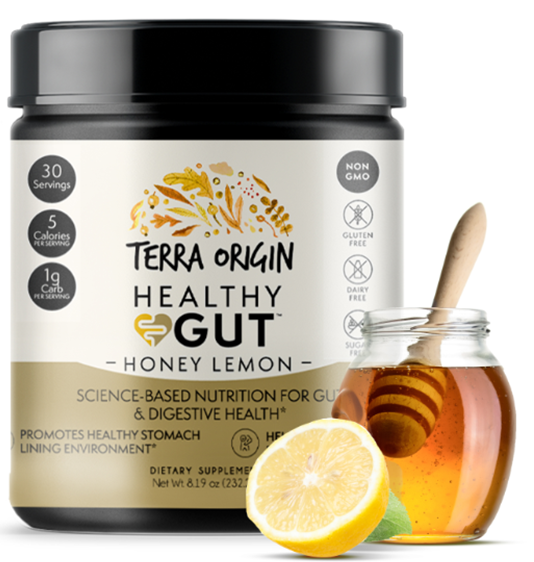Best Gut Health Supplement Choices for Enhanced Nutrient Absorption
Best Gut Health Supplement Choices for Enhanced Nutrient Absorption
Blog Article
Discover the Key to Food Digestion and Resistance With Intestine Wellness Assistance

Recognizing Gut Wellness
Understanding digestive tract wellness is important for total well-being, as it plays a considerable role in digestion, resistance, and also mental health and wellness. The intestine, comprising the intestinal system, is accountable for breaking down food, soaking up nutrients, and expelling waste. A balanced digestive tract setting ensures efficient digestion, enabling the body to make use of nutrients effectively.
Furthermore, digestive tract wellness significantly impacts the immune system. The digestive tract houses a significant section of the body's immune cells, and a healthy and balanced gut can help ward off microorganisms and minimize swelling. Interruptions in digestive tract wellness can bring about an over active immune feedback, possibly adding to autoimmune disorders and allergic reactions.
Additionally, the gut is frequently referred to as the "second brain" due to the gut-brain axis, a complex communication network connecting the mind and the intestine. This link affects mood, cognition, and emotional well-being. Issues such as dysbiosis, identified by an inequality in intestine microorganisms, have actually been related to mental health problems, consisting of stress and anxiety and anxiety.
The Gut Microbiome Explained

The intestine microbiome, a diverse neighborhood of microorganisms residing in the stomach tract, plays a critical role in keeping digestion health and wellness and overall health. Making up trillions of bacteria, infections, fungi, and various other microorganisms, this complex ecological community help in the digestion of food, the synthesis of essential nutrients, and the law of metabolic processes.
Each person's digestive tract microbiome is unique, affected by factors such as diet regimen, way of life, genes, and environmental direct exposures. A balanced microbiome sustains optimal food digestion by breaking down complicated carbohydrates, creating short-chain fats, and assisting in the absorption of nutrients. Conversely, a discrepancy, frequently described as dysbiosis, can lead to digestion disorders, including short-tempered bowel disorder (IBS) and inflammatory bowel illness (IBD)
Study has shown that a varied microbiome is related to far better health results, emphasizing the importance of dietary selections in supporting these microorganisms. Foods rich in fiber, probiotics, and prebiotics, such as fruits, veggies, and fermented items, can promote a healthy microbiome. Comprehending the intestine microbiome is important for establishing targeted treatments focused on improving gastrointestinal health and wellness and protecting against gastrointestinal illness.

Connection In Between Food Digestion and Immunity
A robust link exists between food digestion and resistance, highlighting the important duty of the digestive tract in keeping overall health and wellness. The stomach tract is home to trillions of bacteria that create the digestive tract microbiome, which dramatically influences both digestion procedures and immune responses. This complicated environment help in breaking down food, absorbing nutrients, read more and giving vital metabolites that sustain immune feature.
When food digestion is reliable, the gut barrier stays undamaged, preventing damaging virus from getting in the bloodstream (gut health supplement). Conversely, bad food digestion can cause an inequality in the microbiome, resulting in dysbiosis, which has been linked to various health and wellness problems, including autoimmune illness and inflammatory conditions. Approximately 70% of the immune system resides in the gut-associated lymphoid cells (GALT), which connects very closely with the intestine microbiome. This interaction makes sure that the body immune system can successfully differentiate between useful and damaging substances.
Tips for Supporting Gut Wellness
Supporting intestine health and wellness is vital for preserving both gastrointestinal performance and a well-functioning immune system. To cultivate ideal intestine health and wellness, take into consideration integrating numerous useful strategies right into your daily routine.
First, focus on hydration. Consuming ample water supports food digestion and helps preserve the mucosal cellular lining of the intestines. Furthermore, normal physical activity can improve intestine motility and promote a varied microbiome.
Conscious eating practices are likewise important. Chewing food extensively and eating slowly can help food digestion and prevent overindulging, which might stress the intestine. Additionally, taking care of tension with strategies such as meditation, yoga, or deep-breathing exercises can favorably affect intestine health, as tension is understood to interfere with digestive processes.
Integrating prebiotics and probiotics into your program is one more efficient technique. While certain foods will certainly be gone visit this page over later on, comprehending the value of these elements is vital. Prebiotics function as food for valuable intestine click here for more info microorganisms, while probiotics present online useful organisms.
Lastly, prevent excessive use antibiotics, as they can interfere with the equilibrium of digestive tract plants. By following these tips, you can dramatically add to the upkeep of a healthy gut, which is crucial for total health and wellness and vitality.
Foods That Promote Intestine Health

Fermented foods, such as yogurt, kefir, sauerkraut, and kimchi, are rich in probiotics, which are beneficial microorganisms that sustain digestive tract plants and improve digestion. These foods can aid recover balance in the gut, particularly after antibiotic usage or digestion disturbances.
In addition to fermented options, prebiotic foods, such as garlic, onions, asparagus, and bananas, work as nutrition for these probiotics, promoting their development and activity. These soluble fibers support intestine motility and can reduce concerns like irregular bowel movements.
Furthermore, incorporating high-fiber foods, consisting of whole grains, vegetables, legumes, and fruits, is necessary for preserving a healthy and balanced digestive tract. Fiber help in routine digestive tract movements and helps stop digestive system problems.
Lastly, omega-3 fats found in fatty fish, flaxseeds, and walnuts have anti-inflammatory homes that can further support intestine health and wellness. Stressing these foods in your diet can bring about a robust gastrointestinal system and boosted immune function.
Verdict
Finally, prioritizing intestine health is necessary for optimizing digestion and improving resistance. A balanced digestive tract microbiome, affected by nutritional choices and way of life aspects, plays a crucial function in nutrient absorption and swelling decrease. Incorporating fermented foods, prebiotics, and high-fiber options, together with appropriate hydration and stress and anxiety management, can substantially advertise intestine health. By adopting these techniques, individuals can support general wellness and vigor, opening the potential benefits of a well-functioning gastrointestinal system.
Recognizing intestine wellness is critical for total health, as it plays a substantial function in food digestion, immunity, and even mental health. The intestine houses a significant section of the body's immune cells, and a healthy and balanced digestive tract can help fend off pathogens and reduce swelling.Furthermore, the digestive tract is typically referred to as the "second brain" due to the gut-brain axis, an intricate interaction network connecting the digestive tract and the brain.A durable connection exists between food digestion and immunity, highlighting the essential role of the intestine in keeping general health.In verdict, prioritizing gut wellness is important for enhancing digestion and boosting immunity.
Report this page